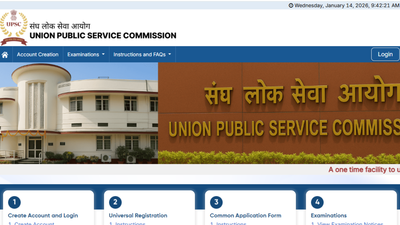Can banning phones improve learning? 35 US states are putting the idea to the test

As smartphones have become ubiquitous in the lives of American teenagers, classrooms across the country are grappling with a new challenge: Keeping students focused. In response, 35 states, including the District of Columbia, are introducing new rules to limit cellphone use during school hours, testing the hypothesis that less screen time could translate into better learning outcomes. According to the Associated Press, the movement has grown rapidly, with Florida passing the first state law in 2023 and Kentucky joining the wave this school year.
A classroom transformed
Jamel Bishop, a senior at Doss High School in Louisville, Kentucky, is already noticing the difference. “In previous years, students often weren’t paying attention and wasted class time by repeating questions,” he told the AP. “Now, teachers can provide more one-on-one time for the students who actually need it.”The rules vary by state. In 18 states and D.C., phones are banned throughout the school day, while states like Georgia and Florida impose “bell-to-bell” bans only through eighth grade. Others allow phones outside class or simply mandate that schools adopt policies, leaving districts to enforce the limits themselves.
Students adjusting to new routines
At McNair High School in suburban Atlanta, students have been putting phones in magnetic pouches or special lockers since last year. Audreanna Johnson, a junior, admitted that initially, most students resisted: “They would text their friends in other classes to see what’s going on around the building. That resentment is starting to ease down.”Yet not all students see the changes as a win. Johnson also shared a drawback: “I listen to music to help focus on schoolwork. I’m kind of 50-50 on the situation,” she told AP, highlighting the nuanced ways technology intersects with learning.
Parents voice concerns
Parental input has become a critical part of the debate. In a survey of 125 Georgia school districts conducted by Emory University researchers, resistance from parents emerged as the top obstacle to regulating student phone use. Audrena Johnson explained why she values her daughter’s access to a phone: “If something were to happen at school, I know instantly.” Jason Allen, national director of partnerships for the National Parents Union, echoed the concern, telling AP that many parents support restrictions but want improved communication about safety and schedules.
Research is still catching up
Experts caution that evidence on the academic and psychological impact of phone bans remains preliminary. Julie Gazmararian, a professor of public health at Emory University, said teachers “love the policy. They could focus more on teaching. There were just not the disruptions.” She also noted more positive social interactions, as students talk to one another more in hallways and cafeterias.However, the link between phone use, social media, and mental health is complex. Munmun De Choudhury, a Georgia Tech professor, told AP, “We need to be able to quantify what types of social media use are causing harm, what types of social media use can be beneficial.”
Resistance and local control
Not all states are on board. Wyoming’s Senate rejected a requirement for districts to adopt cellphone policies, arguing that teachers and parents should bear responsibility. In Michigan, a bill banning phones during instruction in K-8 and high school was defeated after debates about local control, despite Democratic Governor Gretchen Whitmer advocating for stricter rules.
A balancing act
The cellphone debate underscores a broader challenge for modern education: Balancing student focus, social interaction, and parental peace of mind in an era dominated by digital devices. While early results suggest reduced distractions and more engaged classrooms, researchers caution that the long-term effects on learning and mental health remain unclear.What is evident, however, is that the 35 states embracing phone restrictions are providing a national laboratory for one of education’s most pressing questions: can banning phones truly improve learning? For students, teachers, and parents, the answer is unfolding one school year at a time.(with inputs from AP)TOI Education is on WhatsApp now. Follow us here.





